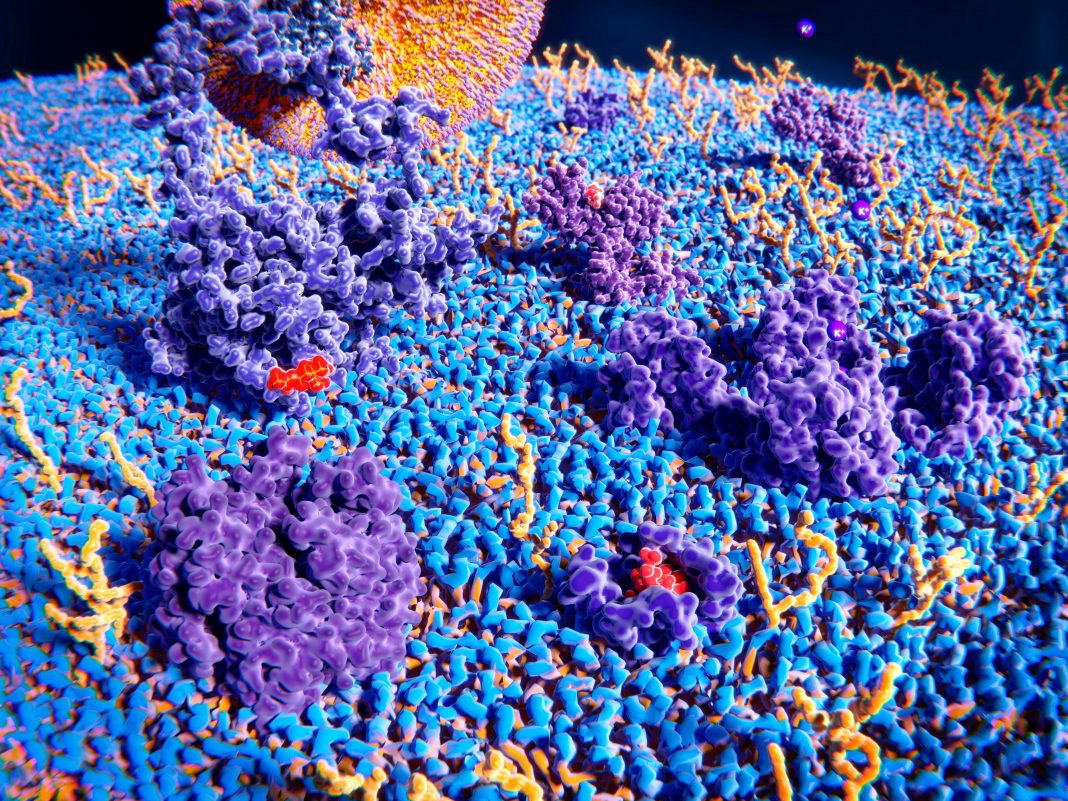New research on how cancer mutations influence a certain type of receptor on the cell membrane opens the way for the development of tailored drugs for certain cancers, such as rectal cancer and lung cancer, according to scientists at the Karolinska Institute and Uppsala University, along with colleagues in the U.K. and U.S.
Their study (“A conserved molecular switch in Class F receptors regulates receptor activation and pathway selection“), published in Nature Communications, focuses on a group of G protein-coupled receptors called Class Frizzled (Class F).
“Class F receptors are considered valuable therapeutic targets due to their role in human disease, but structural changes accompanying receptor activation remain unexplored. Employing population and cancer genomics data, structural analyses, molecular dynamics simulations, resonance energy transfer-based approaches, and mutagenesis, we identified a conserved basic amino acid in TM6 in Class F receptors that acts as a molecular switch to mediate receptor activation,” wrote the investigators.
“Across all tested Class F receptors (FZD4,5,6,7, SMO), mutation of the molecular switch confers an increased potency of agonists by stabilizing an active conformation as assessed by engineered mini G proteins as conformational sensors. Disruption of the switch abrogates the functional interaction between FZDs and the phosphoprotein Disheveled, supporting conformational selection as a prerequisite for functional selectivity. Our studies reveal the molecular basis of a common activation mechanism conserved in all Class F receptors, which facilitates assay development and future discovery of Class F receptor-targeting drugs.”
“Class F receptor dysfunction can be linked to different forms of cancer,” said Gunnar Schulte, PhD, study leader and professor at Karolinska Institute’s department of physiology and pharmacology. “We can now describe in molecular detail how the receptors are activated and try to find drugs that stop this activation to prevent tumor growth.”
The receptors on the cell membrane are activated by hormones or messenger molecules, which trigger a cascade of processes within. G protein-coupled receptors are one of the largest protein families in the body and are already an established drug target for a whole range of diseases. An important subgroup of G protein-coupled receptors are the so-called Class F receptors, but to date they have not constituted a therapeutic target to any great extent.
In this present study, the researchers used newly developed methods to compare the mutation frequency of Class F receptors in tumors with the normal population. In linking cancer mutations to receptor function in this way, they claim to have opened up new opportunities for mechanism-based drug discovery. The study describes for the first time how regions of the Class F receptor act as a kind of switch for receptor activation, and how mutations in the receptor molecules can drive tumor development.

According to Schulte, there are indications that other diseases, such as fibrosis, can also be linked to Class F receptor dysfunction. The researchers are currently working with the Swedish national research facility SciLifeLab to develop their ideas and explore potential new drugs.
“Drugs targeting receptors in this group have been unspecific,” Schulte said. “We hope that it will now be possible to develop more effective drugs that can target individual receptors, drugs for cancers such as rectal, cervical, and lung cancer.”


